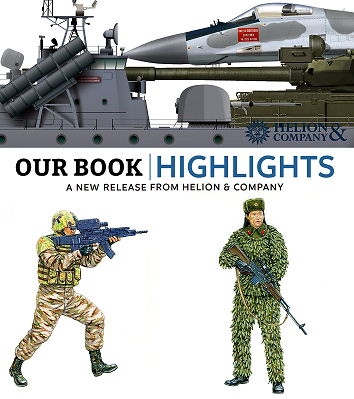By Stijn Mitzer and Joost Oliemans
Saudi Arabia is well known for operating some of the most advanced military equipment currently on offer, including the M1A2S main battle tank (MBT) and the F-15SA multirole strike fighter acquired from the U.S. But as with many a military worldwide, aging and sometimes unexpected armament operates in the second line of defence and on fronts deemed less volatile. For the Kingdom of Saudi Arabia, this not only includes an assortment of older equipment such as the M60 Patton MBT and the M113 APC, but also a number of peculiar-looking BTR-3 APCs acquired from Ukraine for use as emergency rescue vehicles.
Saudi Arabia is well known for operating some of the most advanced military equipment currently on offer, including the M1A2S main battle tank (MBT) and the F-15SA multirole strike fighter acquired from the U.S. But as with many a military worldwide, aging and sometimes unexpected armament operates in the second line of defence and on fronts deemed less volatile. For the Kingdom of Saudi Arabia, this not only includes an assortment of older equipment such as the M60 Patton MBT and the M113 APC, but also a number of peculiar-looking BTR-3 APCs acquired from Ukraine for use as emergency rescue vehicles.
As already given away by the chartreuse livery (yes, that's the name of an actual colour) of the vehicles in question, Saudi Arabia's BTR-3s are unlikely to ever venture close to any active frontline. Instead, the BTR-3's amphibious and off-road capabilities mean it is well-suited to provide disaster relief during natural disasters such as floods and mudslides. In this role the BTR-3s act very similar to the Russian GAZ-59037 – the civilian version of the BTR-80 APC that has proven its worth in rescuing flood victims in Vietnamese service.
Although outfitted as an emergency rescue vehicle in Saudi service, the BTR-3 retains the original armour values of its APC and IFV counterparts, providing all-round protection against 7.62 mm rounds and artillery shell splinters (and by extension, hail damage). After their delivery to Saudi Arabia (the exact date of which remains unknown), the vehicles entered service with the General Directorate of Civil Defense: an agency concerned with the protection of lives and property during peacetime, disasters and conflicts.
Saudi Arabia is well known for its vast desert regions spanning the country from West to East, but perhaps contrary to popular expectations regularly has to deal with major natural disasters such as heavy rainfalls, floods and (less surprisingly) sandstorms. In an effort to better cope with such disasters, the General Directorate of Fire Fighting was first established in 1960. [1] Under the control of the Ministry of Interior (MOI), the agency subsequently underwent a name change to the General Directorate of Civil Defense (GDCD), under which title it is still known today. In addition to dealing with natural disasters, the GDCD also plays a pivotal role in ensuring the safety of pilgrims during the annual Hajj pilgrimage to Mecca.
In order to fit their role as emergency rescue vehicles, the BTR-3s received several modifications that included the removal of the turret, the addition of handrails and additional hatches on top of the vehicle, and numerous other safety additions. The emblem of the General Directorate of Civil Defense is usually applied to the sides, and sometimes the front of each vehicle.
Also operated by the General Directorate of Civil Defense are a wide variety of other support vehicles, comprising wheeled recovery vehicles, heavy-duty trucks and equipment such as bulldozers and excavators. Until several years ago, the agency even operated its own fleet of tandem-rotor KV-107 transport helicopters. [2] After their retirement in the late 2000s, the KV-107s were replaced by Sikorsky S-92 multi-mission helicopters operated by the MOI on behalf of the GDCD.
Despite their bright yellow-green livery, Saudia Arabia's BTR-3s remain some of the most obscure pieces of equipment in service with the Kingdom today. Their appearance may ordinarily be overshadowed by the grim circumstances that necessitate their deployment, but to the casual observer they serve as a reminder that surprising equipment can turn up in places you least expect. Though in this instance it concerns innocuous emergency rescue vehicles, Saudi Arabia's next deal with Ukraine would entail acquiring more potent capability: The Hrim-2 mobile short-range ballistic missile (SRBM), which is designed in Ukraine with funding provided by Saudi Arabia, and is slated to enter service in the Kingdom early this decade.
[1] The General Directorate of Saudi Civil Defense https://www.eyeofriyadh.com/directory/details/77_the-general-directorate-of-saudi-civil-defense
[2] Kawasaki KV-107/IIA-SM https://www.dstorm.eu/pages/en/saudi/kv-107.html

























